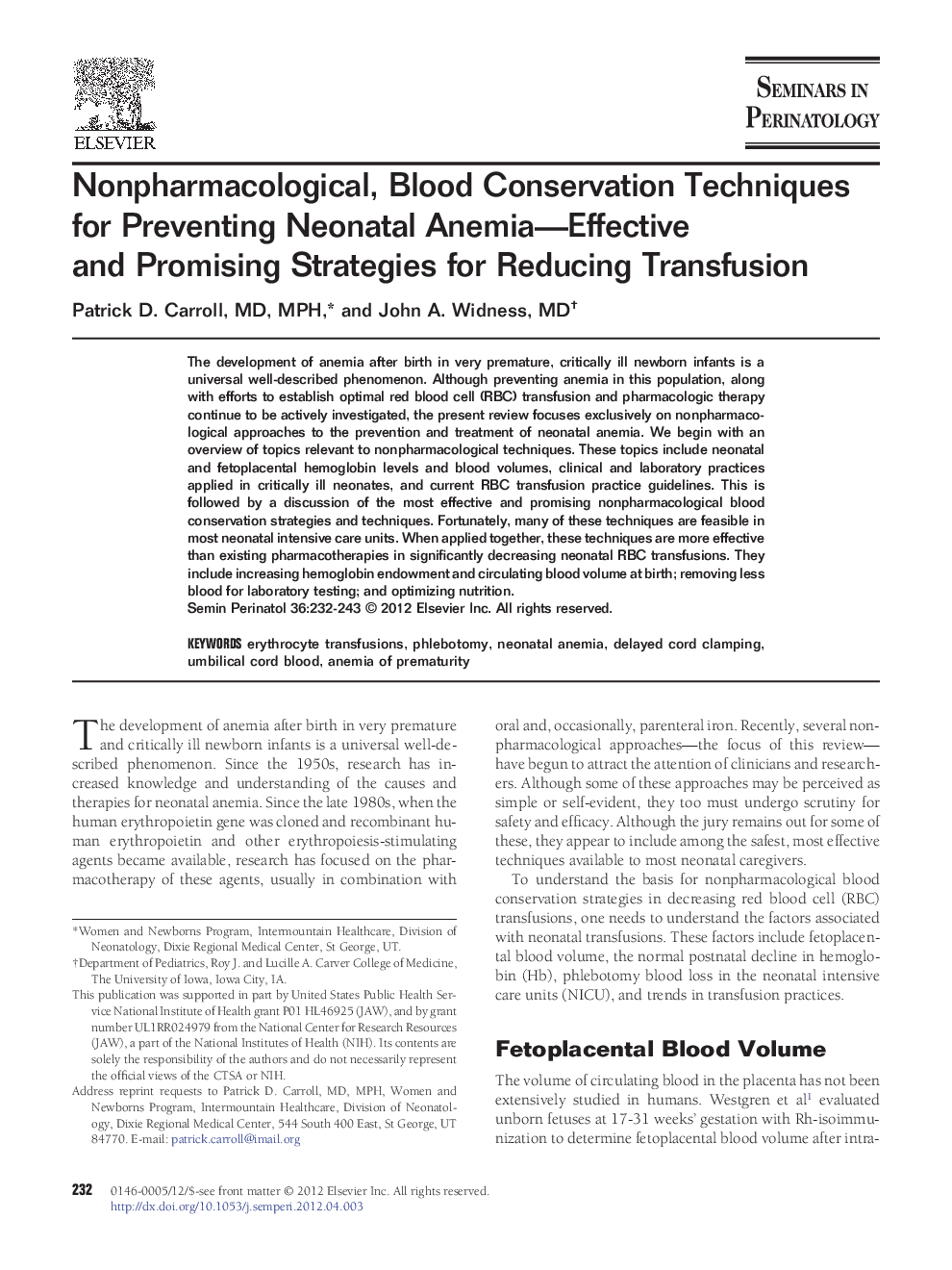| Article ID | Journal | Published Year | Pages | File Type |
|---|---|---|---|---|
| 3836460 | Seminars in Perinatology | 2012 | 12 Pages |
The development of anemia after birth in very premature, critically ill newborn infants is a universal well-described phenomenon. Although preventing anemia in this population, along with efforts to establish optimal red blood cell (RBC) transfusion and pharmacologic therapy continue to be actively investigated, the present review focuses exclusively on nonpharmacological approaches to the prevention and treatment of neonatal anemia. We begin with an overview of topics relevant to nonpharmacological techniques. These topics include neonatal and fetoplacental hemoglobin levels and blood volumes, clinical and laboratory practices applied in critically ill neonates, and current RBC transfusion practice guidelines. This is followed by a discussion of the most effective and promising nonpharmacological blood conservation strategies and techniques. Fortunately, many of these techniques are feasible in most neonatal intensive care units. When applied together, these techniques are more effective than existing pharmacotherapies in significantly decreasing neonatal RBC transfusions. They include increasing hemoglobin endowment and circulating blood volume at birth; removing less blood for laboratory testing; and optimizing nutrition.
